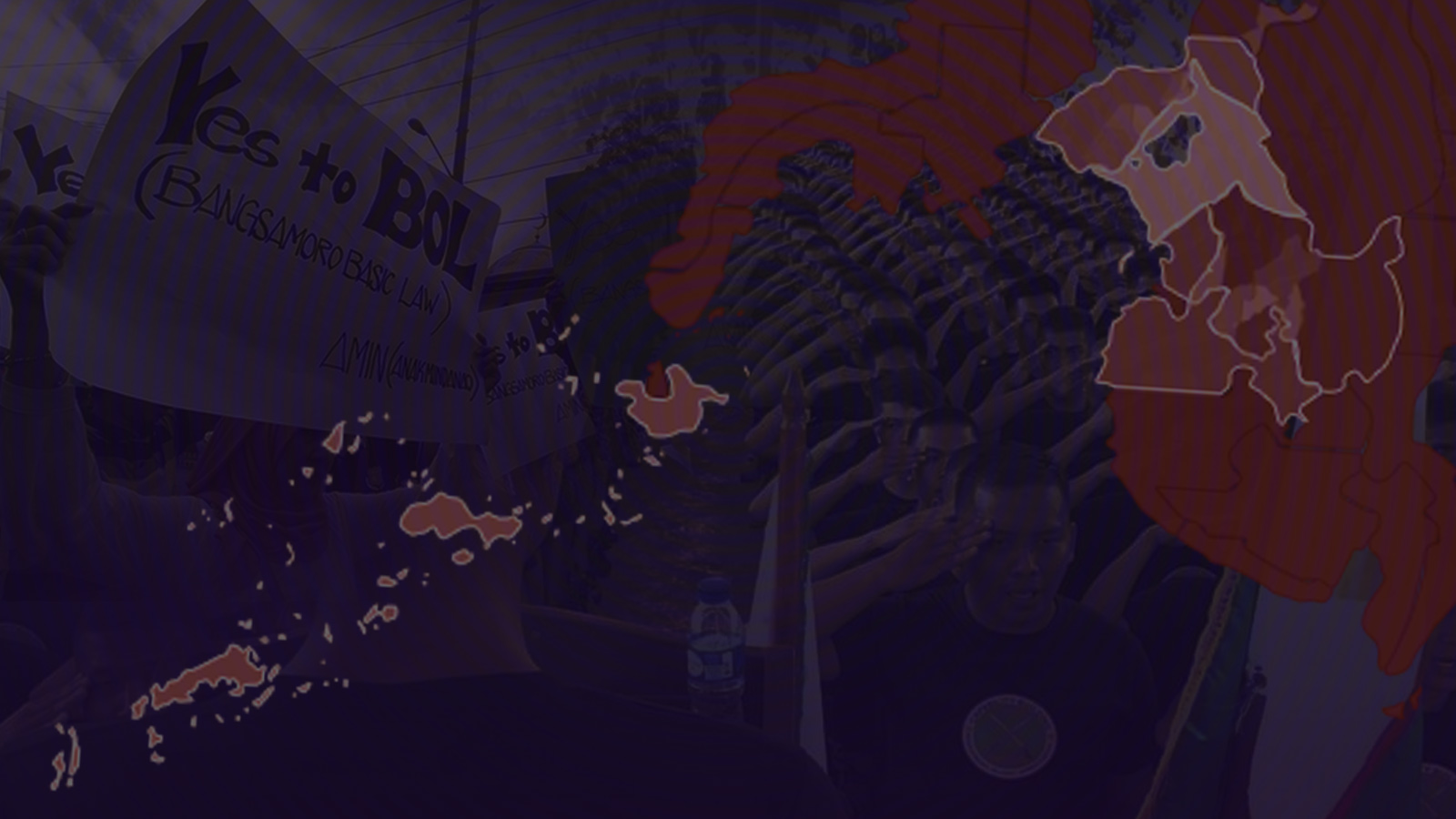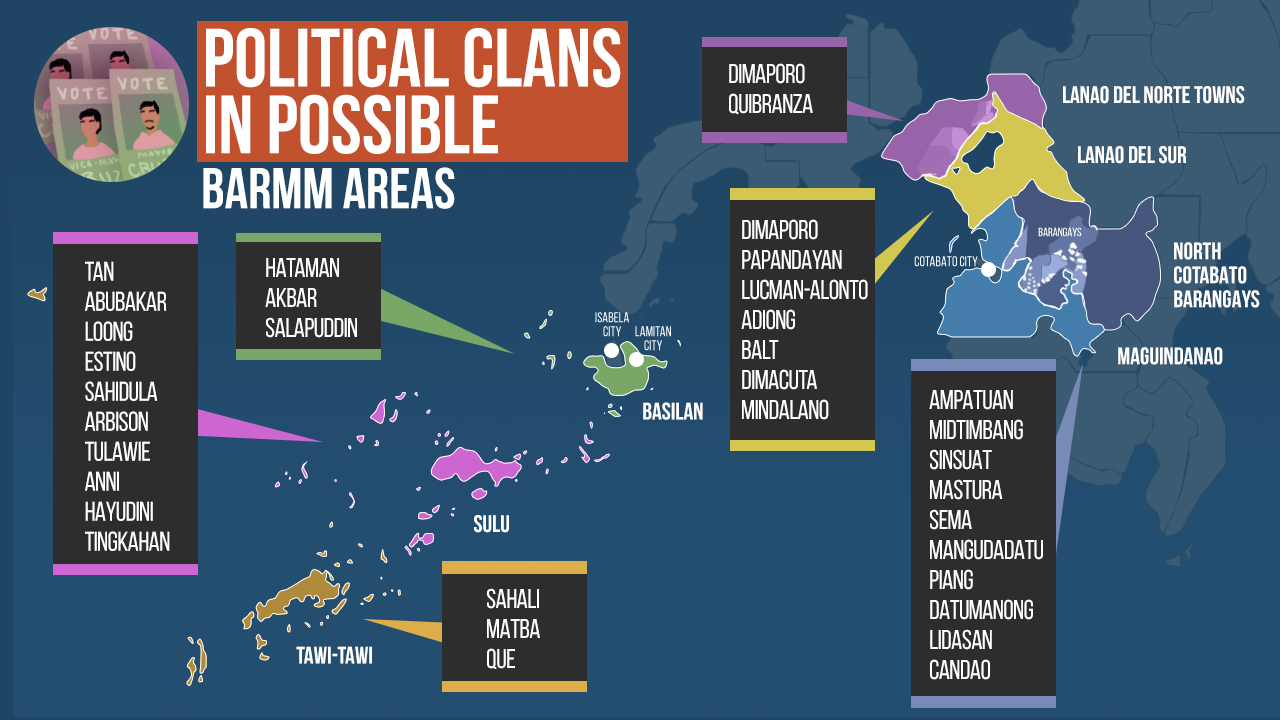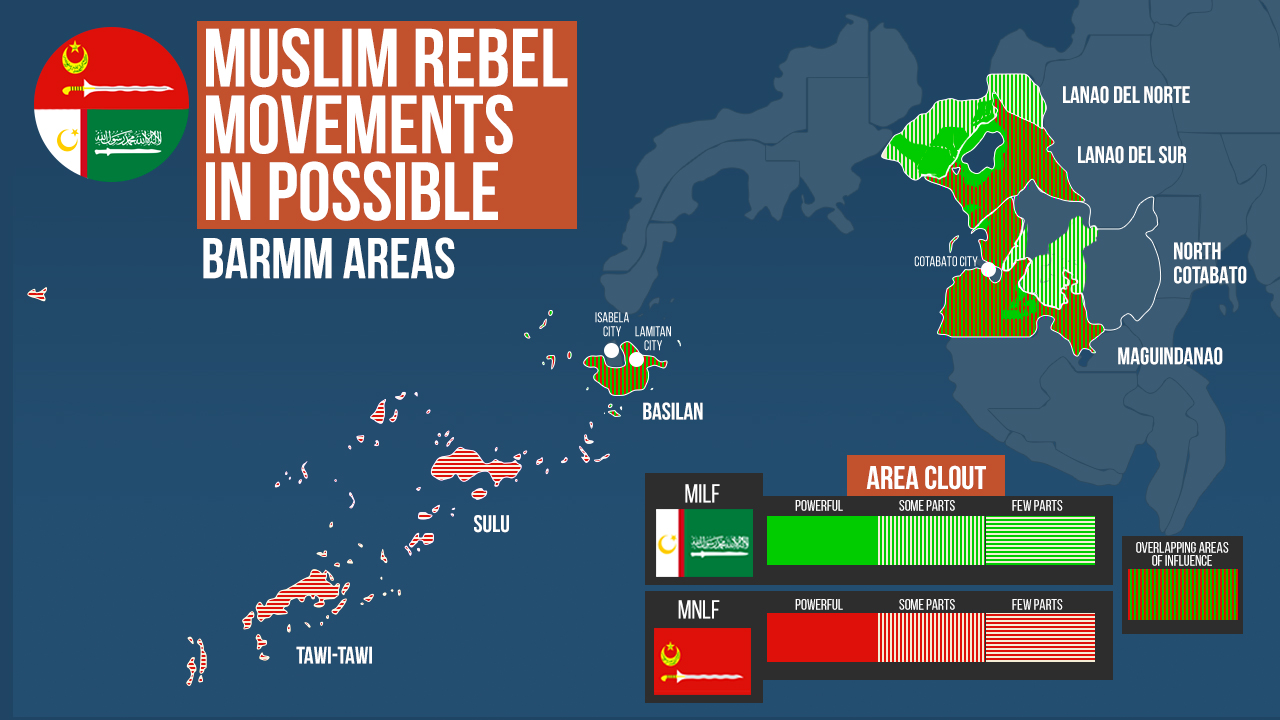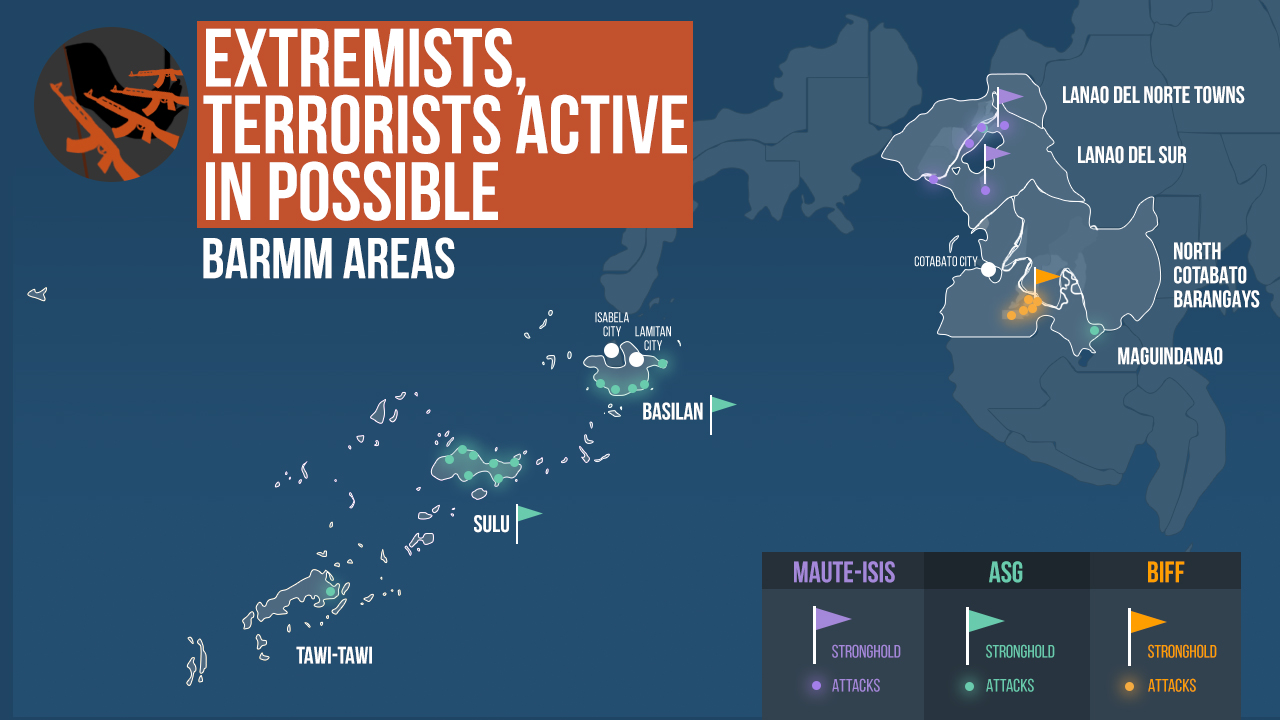
Power brokers in the Bangsamoro region
Rappler identifies the key groups and clans that have shaped and influenced the region over the years. What's in store for them in the future Bangsamoro autonomous region?
%
%
%
%
%
%
%
%
MANILA, Philippines – When Mindanaoans step out to vote in the Bangsamoro plebiscite on Monday, January 21, they will determine whether or not the envisioned new autononomous regional government will expand its territory or remain limited to its current set-up.
But the future Bangsamoro Autonomous Region in Muslim Mindanao (BARMM) is merely a political structure. For decades, it's the power brokers – the political clans, Moro rebel groups, and even terrorist groups – that have shaped and will shape past and future autonomous regions in Mindanao. (READ: 6 scenarios for the Bangsamoro vote)
They hold sway over people, have access to money, arms, and the bureaucracy, and influence politics and security in the provinces, cities, towns, and barangays (villages) that will comprise the BARMM – if the BARMM wins a “yes” vote on January 21.
Who and what are these powerful groups?
- The well-entrenched families and clans that control all levers of local power, and government coffers.
- The Moro Islamic Liberation Front (MILF) and Moro National Liberation Front (MNLF), which are the two biggest rebel movements that have signed various peace deals with the Philippine government. The latest peace deal with the previous Aquino government, sealed by the MILF, is the basis of the Bangsamoro Organic Law that is the subject of the plebiscite on Monday. (READ: After Bangsamoro law, a bright yet bumpy path to peace)
- The Abu Sayyaf Group (ASG), Maute and other ISIS-allied groups, Bangsamoro Islamic Freedom Fighers (BIFF), which advocate terrorism, engage in crime for fund-raising, and reject the peace process. (READ: Global threat forecast in 2019)
Rappler maps out where these various groups hold influence in the territories that could comprise BARMM – the provinces of Lanao del Sur, Maguindanao, Sulu, Tawi-Tawi, Basilan, the city of Cotabato, 6 towns of Lanao del Norte, and 67 barangays (villages) in North Cotabato.
Click the "next" icon or gray dots under the map to navigate through 3 maps – a map for political clans, a map for Moro separatist groups, and a map for extremist and terrorist groups.
The maps only show their clout on the provincial level.
If a group holds influence only in some or a few parts of that province, their clout is visualized through vertical and horizontal lines, respectively – to show the limited nature of the group’s power there.
Data on the powerful political clans in each province was largely sourced from the non-government International Alert Philippines. We also verified and counter-checked the data in interviews with Professor Julkipli Wadi of the University of the Philippines (UP) Institute of Islamic Studies and other longtime residents and observers in ARMM.
MAJOR PLAYERS



Based on data from International Alert, fatal attacks occurred from 2016 to 2017.
Earlier, we wrote about 6 scenarios for the plebiscite.
But under BARMM, what’s next for these groups and clans?
MILF: From rebellion to governance
The greatest shift in the power dynamic will favor the MILF in the short term.
The rebel group that former president Joseph Estrada once vowed to crush to irrelevance, will become the dominant political force in the region. MILF leaders and members will automatically occupy a majority of the 80-member Bangsamoro Transition Authority (BTA), the entity that will govern the fledgling region until the May 2022 elections when new officials will be elected.
MILF chairman Murad Ebrahim is a shoo-in for the post of BARMM Chief Minister, the head of the BTA to be appointed by President Rodrigo Duterte.
The challenge for the MILF is to transition from being a separatist group to a group tasked with governing, delivering social services, and managing public funds.
It's the same situation faced by the the MNLF more than 2 decades ago, after it signed a peace agreement with the Ramos administration. MNLF founding chairperson Nur Misuari eventually was elected governor of the Autonomous Region in Muslim Mindanao (ARMM), but even his own comrades later accused him of mismanagement and incompetence. Some of them formed factions to oppose him.
On the MILF, UP political science department chairperson Ela Atienza told Rappler, “Can they (MILF) be professional politicians and bureaucrats? Because the challenge always is, can you govern? You’re used to fighting, challenging authority. Now you will be given a chance to govern, so can you govern?”
Another challenge is how the MILF will negotiate with the existing groups that we identified in the maps.
The Dimaporos, Mangudadatus, Adiongs, and Tans all have strong networks among their respective communities as well as with national government officials. They also control many businesses. Will the MILF try to exert more influence over the clans? Will they try to dislodge clans’ ties with national government or transfer those links to them?
International Alert’s Senior Peace and Conflict Adviser Pancho Lara wonders if the MILF would be aggressive in imposing taxes, which will surely hit the political clans and their businesses.
“One option is, for political stability, they won’t rock the boat before 2022. They won’t collect taxes. Anyway, their justification will be, we have money, because of the block grant,” Lara told Rappler in an interview.
In the Bangsamoro Organic Law, the BTA will be allocated transition funds from the national budget and will get the remaining funds intended for ARMM.
The end-goal of the MILF, of course, is to retain power by getting elected in the May 2022 elections.
But to do so, they have to convince the people of BARMM that their style of governance works. The pressure is on them to deliver results in the next two years: reduced poverty, more businesses and jobs, and stability among ethnic clans and economic classes.
People of the Bangsamoro region will also look to the group to see how well they maintain peace and security and deal with high-stakes issues such as the rehabiltiation of war-torn Marawi City.
And so the MILF might pursue a second option: impose taxes to show BARMM, under their leadership, can generate revenue on its own – a key to good governance.
“That can also get them support. If they say that ‘No, we're going to collect taxes and we're going to show people how we're going to use those taxes.’ But then with that particular action, they will square off with the clans,” said Lara.
Political clans: Retaining, expanding their power
Meanwhile, BARMM poses risks as well as benefits for the political clans.
In the first two years, they will have to contend with the new clout of the MILF.
Lara said that before 2022, the clans will “play along” with the MILF. But come 2022 elections, the BARMM leadership will be up for grabs. It's the same fate that the MNLF-led ARMM also suffered before.
The political clans will definitely want their members in government posts, especially in the new parliament that will pass laws and decide on the region’s budget. Seats in this parliament will be coveted, since the region’s budget is assured, given the block grant (around P60 billion) stipulated in the Bangsamoro Organic Law.
There are also already leaders of certain political clans eyeing the Chief Minister position in 2022. Will they succeed in replacing Murad or will Murad himself get elected for another term?
Extremist, terror groups: Can they still attract followers?
If BARMM is able to improve the lives of people in the region, naturally the Abu Sayyaf, BIFF, and Maute Group will have a harder time attracting adherents to their radical cause. There'd be less grievances to exploit and less fertile ground to plant extremist thought.
If things get worse in BARMM – deteriorated qualify of life, more friction among ethnic groups and clans, heightened discrimination – it is possible the opposite would happen. More BARMM residents would have reason to give up on the government and turn to these extremist groups instead.
A sore point is Marawi, where rehabilitation is slow and which Muslim radicals use to recruit the youth to their cause. (READ: Seeds of insurgency: The youth of Marawi)
It’s up to the future BTA and national government to ensure these terror groups will have less capacity to wreak havoc. Such efforts would include controlling firearms in the region, reducing capability to make bombs and carry out attacks, and stemming their access to financial sources, among others.
But there is a 4th power player: the people of the Bangsamoro themselves.
The residents of BARMM hold the power of the ballot. They decide, by a stroke of the pen, who will win a seat in the Parliament. They can decide to say no when terror groups come knocking on their doors with promises. – Rappler.com

